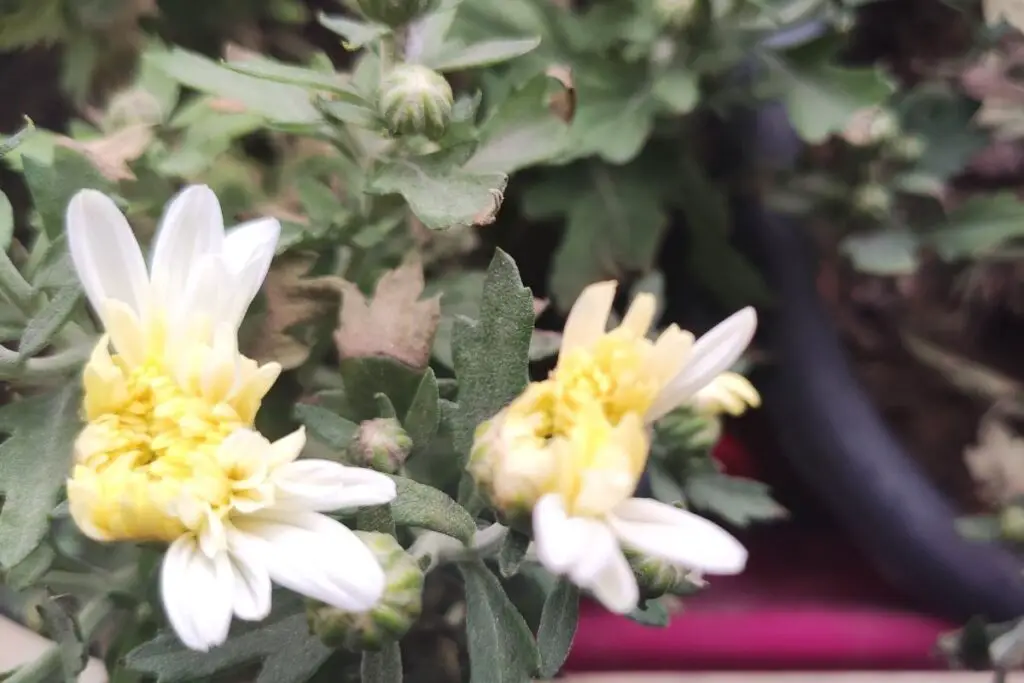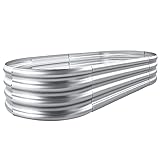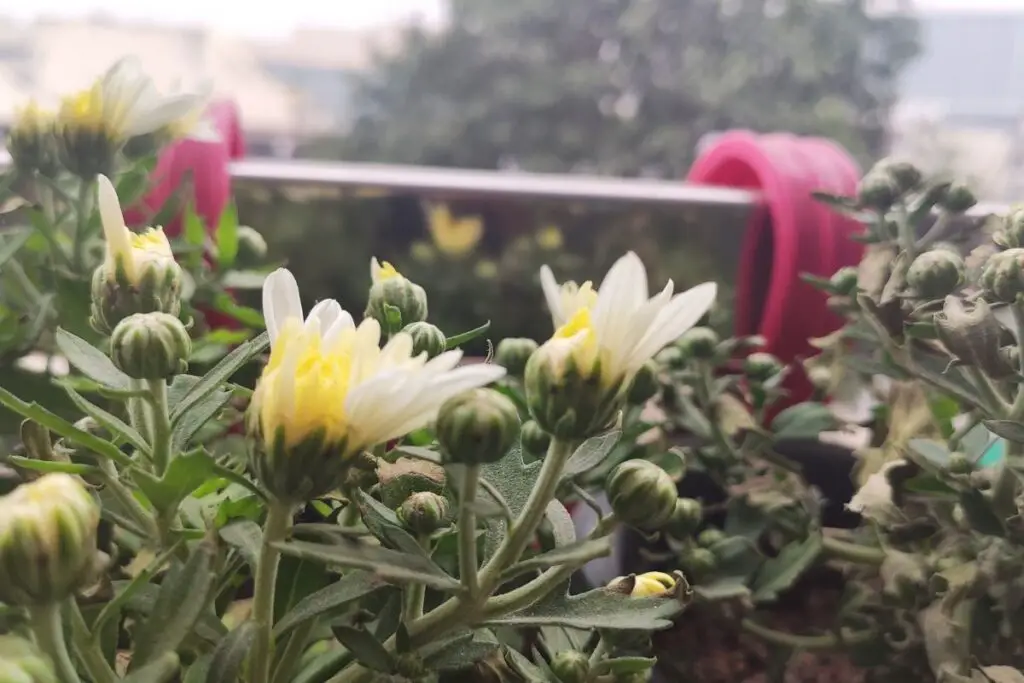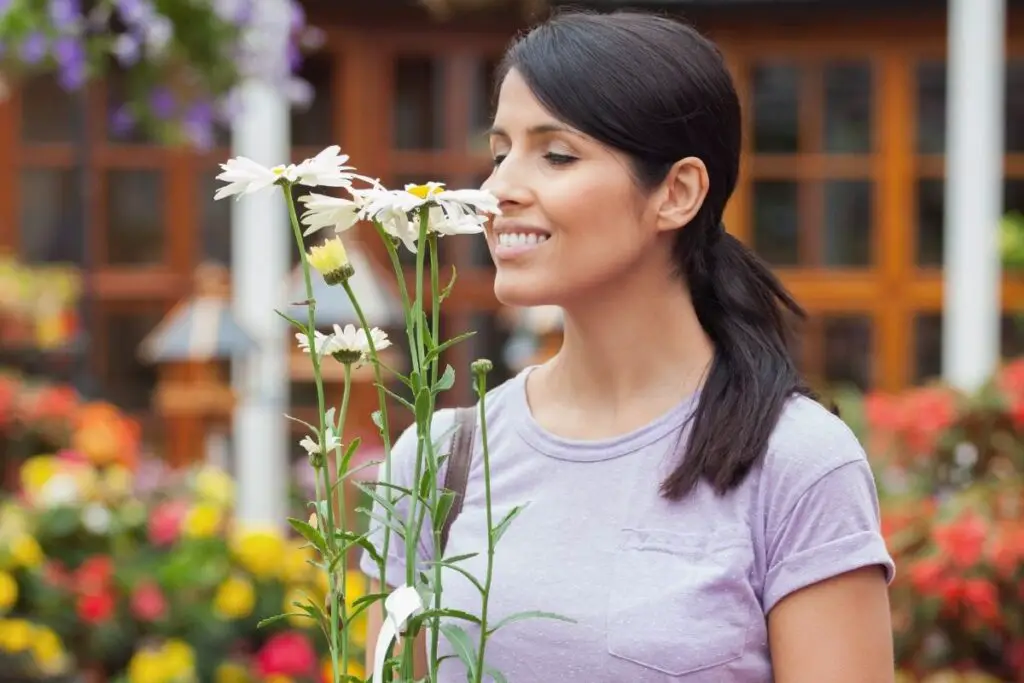Daisies are primarily planted in the fall and early spring or autumn. Unexpected drops in temperatures often cause plants to wilt.
Daisies require special care during the winter season as it is the dormant period for daisies, which means the plant is resting and it is inactive during this time. So, in this article, we shall learn everything about caring for daisies in the winter months.
To care for daisies in the winter, you need to make the following changes in their care regime:
- Make sure the plant gets an ample amount of sunlight throughout the day.
- Lower the watering frequency of the plant and make sure the soil dries out before watering.
- If the temperature goes below 40°F, try to move the plant to a greenhouse or indoors.
- Stop fertilizing the plant.
- Try to keep the plant away from frost and cold drafts.
It becomes difficult for daisies to grow appropriately in winters, and it suffers from many problems.
If you want daisies to stay healthy during the winter months, you should have a different and proper care routine. Here we will discuss the various kinds of problems in detail and deal with those problems deliberately.
Problems daisies face during winter
There are many problems that your plant can face during winter. Some of the problems are given below.
- Dormancy
- Dropping of leaves
- Leggy growth
Now we will discuss each problem in detail.
Dormancy

Dormancy is a survival strategy of plants where they pause their growth to take a rest during winter. Winter is the dormant period for most of the plants, including daisies.
As daisies grow, they are affected by temperature and sunlight. These two forces act as signals to daisies that winter is coming. When winter arrives, the growth of daisies slow down, and your daisies may not bloom during winter.
When daisies are inactive and taking rest, it minimizes their metabolic activity, which helps them conserve energy. It is a crucial period for daisies to survive, and it requires proper and special care to deal with this issue.
Also read: Do Daisies Grow In Winter?
Dropping of leaves
Leaf drop can occur in many situations, especially in winter, due to low light and changes in temperature. Root rot can cause leaf drop, and you might notice some yellow, brown, or spotted leaves before they fall.
Root rot mostly happens due to overwatering the plants. A lack of light can also cause root rot during the winter months.
Water and humidity can stress your daisies in cooler climates. You should water less than usual, and additional lighting can help avoid the problem of leaf drop.
Also read: Why Is My Daisy Dying? (Possible Problems+How To Fix)
Leggy growth
You might notice some leggy growth of daisies during winter. It happens primarily due to low-light situations. Daisies might fail to get enough amount of sunlight which can lead them to leggy growth.
Due to improper sunlight in winter, daisies grow quickly in height to get closer to light, and they will start to grow long, spindly, and thin on one side and no growth on the other, which will create a lanky growth in daisies.
Providing them with enough light can solve this problem.
Also read: How Much Light Do Daisies Need? (Daisy Light Requirements)
Looking for gardening supplies? We have tested 100's of products before recommending them to you guys. Check out our best pick below:
| Image | Gardening Supplies | Best Price? |
|---|---|---|
 Top
Top Top
Top | Raised Garden Bed Kit | Check On Amazon |
 | XLUX Soil Moisture Meter, Plant Water Monitor, Soil Hygrometer Sensor for Gardening, Farming, Indoor and Outdoor Plants, No Batteries Required | No Results |
 Top
Top Top
Top | 82 Pcs Garden Tools Set and Extra Succulent Tools Set | Check On Amazon |
 | Joeys Garden Expandable Garden Hose with 8 Function Hose Nozzle, Lightweight Anti-Kink Flexible Garden Hoses, Extra Strength Fabric with Double Latex Core, (50 FT, Black) | No Results |
 Top
Top Top
Top | Dual Chamber Compost Tumbler | Check On Amazon |
 Top
Top Top
Top | Sunnyglade Plant Stakes | Check On Amazon |
 Top
Top Top
Top | Organic Cold Pressed Neem Seed Oil | Check On Amazon |
 Top
Top Top
Top | Mighty Mint Gallon :-Insect and Pest Control Peppermint Oil | Check On Amazon |
 Top
Top Top
Top | Scotts DiseaseEx Lawn Fungicide | Check On Amazon |
 Top
Top Top
Top | Jacks Classic 20-20-20 All Purpose Fertilizer | Check On Amazon |
 Top
Top Top
Top | 30,000 Seeds Pollinator Attracting Wildflower Mixture | Check On Amazon |
 Top
Top Top
Top | Survival Vegetable Seeds Garden Kit-Over 16,000 Seeds | Check On Amazon |
Mistakes that you make in winter which can kill your daisies

Some common mistakes that often ends up wilting your daisies are:
- Overwatering
- Overfertilization
Overwatering
During winter, if you overwater your daisies, it can injure the roots of a plant. Daisies won’t need as much water to keep them hydrated during their dormancy period compared to spring and summer.
Due to excessive water, the plant will get wet continuously, and the air pockets will get blocked because of which daisies will not be able to breathe and leading to root rot.
Also read: How Much Water Do Daisies Need? (Daisy Water Requirements)
Overfertilization
Like the water requirements for daisies during winter decrease, fertilizers and nutrition also decrease as daisies become inactive. Overfertilization can make the roots dry, and it makes it difficult for daisies to absorb water.
Because of over-fertilization, daisies can also occur to your plant, which makes them very difficult to survive during winter.
Also read: Do Daisies Need Fertilizer?
How to take care of daisies during winter?
As survival during the winter months becomes difficult for daisies, we need to take care of them properly. There are a few points you need to remember for taking care of daisies.
- Watering
- Fertilization
- Mulching
- Pruning
Now we will discuss all these points in detail.
Decrease water supply significantly
The most common problem daisies suffer in winter is overwatering.
Winter is the dormant period for daisies, requiring less water than the other seasons, like in summer and spring. Your plant will need water only if it is scorched.
There are some points discussed below that will help you to know whether your daisies need water or not.
- While checking, sometimes you will see that the surface of the soil is dry. You should never judge your soil based on the surface, as sometimes the soil remains moist on the inside but dry from outside.
- Daisies need water when the root zone is dehydrated. You can check this by poking your finger into soil up to 2 inches. If the soil is arid, you need to water it; otherwise, don’t.
- While watering, you should be careful about the ground that it doesn’t stay soggy for an extended period. It can cause root rot which may kill your plant.
Fertilizer requirements
Daisies plants do not need fertilizers in the winter as they are not actively growing, and it is their dormant time.
Overfertilization can weaken the plant, and it can cause root rot, due to which daisies might suffer from various daisies.
Below are the signs of over-fertilization.
The best time for fertilizing the daisies is when they are actively growing. You can provide additional nutrients when the dormant period of daisies is over. You should avoid fertilizing your daisies during winters.
Mulching
Mulching is the process of sheathing the surface of the ground or soil with a layer of some external material. The material which is used for covering is called mulch.
To protect your daisies throughout the winter, you need to spread at least 2 to 3 days of mulch over the daisies.
Materials you can use for mulching of daisies are: –
- Straws
- Dry leaves
- Tree barks
- Wood chips
Why is mulching important for daisies in winter?
Here are some reasons are given below: –
- Mulching will help daisies maintain consistent soil temperatures, which means it helps keep the soil warm in winter and prevent them from freezing of the ground.
- Mulching can also reduce the problem of overwatering in daisies.
- Mulching will eventually break down into essential nutrients that plants need.
Prune off dead growth
It is essential to prune your daisies during winter as you may notice a lot of leggy growth.
Why pruning in winter is vital for daisies?
Pruning in winter will give extra energy and more robust roots to daisies which promote regrowth in the spring. It will help daisies to control their size and shape.
Pruning will help daisies remove the dead or diseased portions because the plant will stay healthy. Below are the things you need to remember while pruning
- When you are pruning during winter, do not apply fertilizers to the daisies as they are inactive at that period.
- Use any sharp objects like sterilized pair of scissors to prune your daisies.
- You have to make clean cuts and make sure you are removing the leggy parts of the plant.
- You should never forget to wash your hand thoroughly after pruning your daisies, or you can also put on gloves while pruning them.
Bring your daisies indoor as the temperature starts falling.

You can give some extra care to your daisies if you bring them indoors. You need to take care of a few factors applicable only if you plant your daisies indoors.
Those few factors are: –
- Temperature
- Light Intensity
- Humidity
Watch the temperature
Change in temperature during the winter months is the most common problem for daisies. The plants start facing trouble if the temperature drops below 40°F.
You should maintain the ideal temperature for daisies and to do so you can follow the below points: –
- If possible, you should maintain an ideal temperature between 65°F-70°F.
- You can keep a thermostat device for maintaining the temperature.
- Keep your plants away from windows at dusk.
- If your area is freezing, you should keep the daisies far from the windows.
Light intensity
The light intensity can change only when your daisies are indoor. During the winter months, light intensity and duration go down gradually. Daisies suffer a lot due to low light levels.
You can maintain light levels by following some steps.
- You can keep your daisies near an artificial light.
- A great source of artificial light is fluorescent bulbs. It can provide enough light to your daisies.
- It would be best to keep the bulb 4-12 inches away from the daisies plant.
- You can also keep your daisies near a window to provide daisies enough sunlight.
- Clean your windows frequently as it will allow daisies to absorb more light.
Humidity
Lack of humidity creates a big problem in the winter season for daisies. If your daisies are getting in trouble because of low humidity, you might notice some brown edges on the leaves which drop off.
There are various ways to deal with low humidity.
- You can use a device which is called a humidifier. This device can add humidity to the air inside your home.
- A humidifier can be beneficial for daisies during winter as it will add missing humidity to the air.
- You can also mist some water on the leaves of the daisies plant to add moisture to them.
You should keep in mind that the humidifier device is just for indoor plants. Daisies are outdoor garden plants, so it does not apply to those daisy plants you cannot bring indoors.
Humidity can only be changed when you will bring your daisies from outdoor to indoor in the winter.
Final words
- You should water daisies less during the winter months because overwatering can kill your entire plant.
- Before freezing temperatures occur, make sure the soil around your daisies has plenty of moisture.
- You should keep in mind that applying fertilizers in the late fall can harm your plant.
- The most important thing for taking care of daisies in winter is mulching.
- Pruning of dead growth during the winter months will encourage your daisies to grow more in the spring season.
- You should know that you can only change temperature, light, and humidity when you bring daisies indoors.
Ref: Wikipedia, Britannica, University Of Florida, Ucanr.edu
